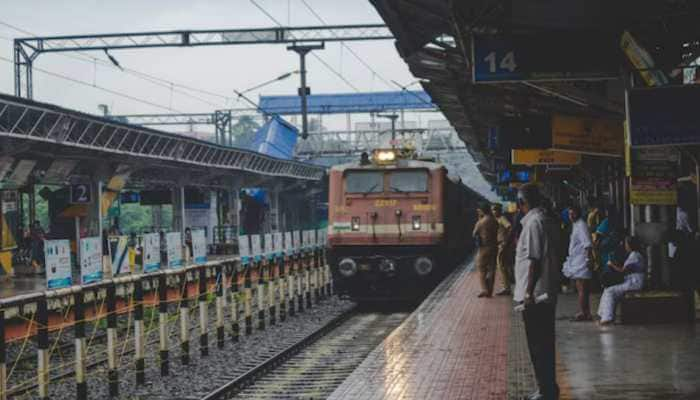Diesel generators to be banned in Delhi from October 15 under new anti-pollution plan
The EPCA has directed Delhi, Haryana and Uttar Pradesh to ban the use of diesel generators, except for essential and emergency services, in the national capital and the neighbouring cities of Ghaziabad, Noida, Greater Noida, Faridabad and Gurugram.
Trending Photos
) File Photo
File Photo NEW DELHI: A Supreme Court-mandated body on Thursday said stricter measures to fight air pollution will come into force in Delhi and its neighbouring cities from October 15 as part of the Graded Response Action Plan (GRAP).
The apex court, however, told the governments of Delhi, Haryana, Punjab, Uttar Pradesh and Rajasthan to try and avert the need to take emergency measures, such as a ban on construction and industries using fuels other than piped natural gas, as the economy is already under stress post-lockdown.
Earlier on October 8, Delhi Environment Minister Gopal Rai inaugurated a 'green war room' at the Delhi Secretariat to monitor steps being taken to bring down pollution levels in the city this winter.
The minister said a 10-member team has been set up under senior scientists Mohan George and B L Chawla to monitor the levels of primary pollutants, measures taken to curb pollution and status of complaints received through Green Delhi mobile application.
Satellite data related to farm fires in the neighbouring states will also be analysed in the green war room.
Delhi's air quality had turned poor on Wednesday, the first time since June 29, with the Central Pollution Control Board recording a 24-hour average air quality index (AQI) of 215. It was 178 on Tuesday.
High levels of air pollution in Delhi is a year-round problem, which can be attributed to unfavourable meteorological conditions, farm fires in neighbouring regions and local sources of pollution.
The Environment Pollution (Prevention and Control) Authority directed the governments of Delhi, Haryana and Uttar Pradesh to ban the use of diesel generators, except for essential and emergency services, in the national capital and the neighbouring cities of Ghaziabad, Noida, Greater Noida, Faridabad and Gurugram.
The EPCA will soon issue a list of exclusions and emergency services where the use of diesel generators will be allowed.
"We should try and avert the need to take other emergency measures for pollution control. The economy is already under stress post-lockdown. Therefore, our combined effort is to ensure that there is no further disruption," the pollution watchdog said in a letter to the states.
It also stressed that co-morbid health conditions are a huge challenge during the COVID-19 pandemic and there is enough evidence that pollution will make them more dangerous.
Authorities categorize industries according to pollution index scores worked out based on the emissions, effluents, hazardous wastes generated and consumption of resources.
Based on the relative scores, the industries are categorized as Red category having score more than or equal to 60, Orange category having score between 41 to 59, Green category having score between 21 to 40 and White category having score less than 20.
The EPCA chief also directed the states to ensure enforcement and full compliance of the action plan on the identified pollution hotspots through ground-level surveillance and night patrolling "to ensure zero-tolerance for all sources of pollution including waste burning and dust".
Controlling air pollution during winter will require greatly enhanced vigilance on the ground so that sources such as industrial stacks, garbage dumping and use of illegal fuels are checked and penalized, he said.
All technologies for dust management, including smog-guns, should be extensively used during this period.
"The Central Pollution Control Board-led task force and EPCA will review the situation frequently and direct additional measures if the need arises," Bhure Lal said.
The measures under GRAP, which was first implemented in Delhi-NCR in 2017, include increasing bus and metro services, hiking parking fees and stopping use of diesel generator sets when the air quality turns poor.
When the situation turns "severe", GRAP recommends closure of brick kilns, stone crushers and hot mix plants, sprinkling of water, frequent mechanised cleaning of roads and maximising power generation from natural gas.
The measures to be followed in the "emergency" situation include stopping entry of trucks in Delhi, ban on construction activities and introduction of the odd-even car rationing scheme.
Stay informed on all the latest news, real-time breaking news updates, and follow all the important headlines in india news and world News on Zee News.
Live Tv







)
)
)
)
)
)
)
)
)
)
